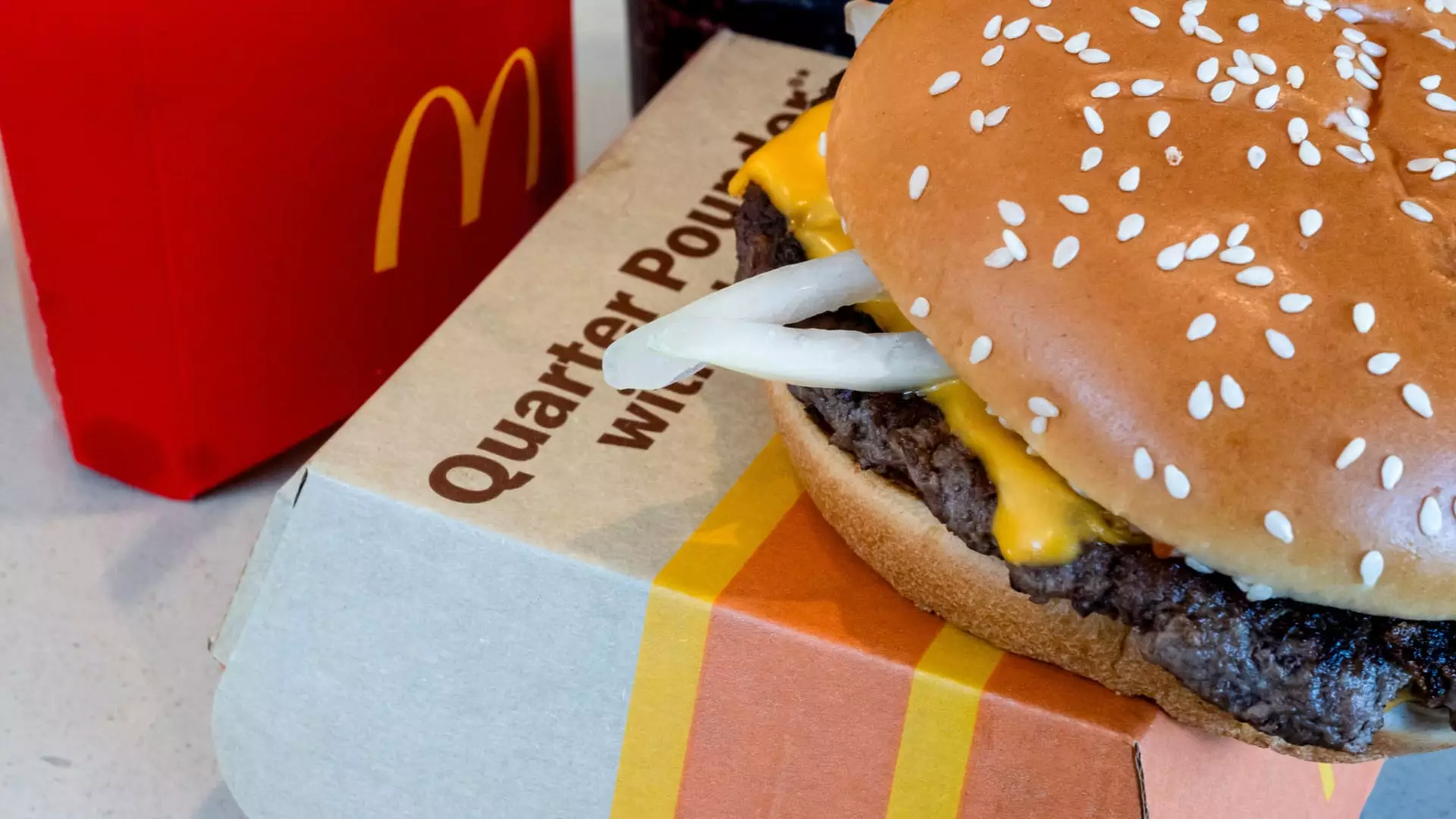The food industry is fraught with challenges, especially when contamination scares hit high-profile corporations. Recently, McDonald’s has found itself at the center of a concerning E. coli outbreak linked to its iconic Quarter Pounders. This unfortunate incident has escalated to 75 reported cases across 13 states, highlighting the need for rigorous scrutiny and protocol within the fast-food giant’s supply chain.
Current Statistics and Health Implications
As of the latest update from the Centers for Disease Control and Prevention (CDC), 75 individuals have contracted E. coli, with alarming statistics including 22 hospitalizations and one reported death. The affected patients, ranging in age from 13 to 88, showcase the indiscriminate nature of this bacterial infection. What’s particularly chilling is that of the 61 patients whose histories were reviewed, the overwhelming majority—42 out of 61—indicated they had consumed McDonald’s food, warranting a thorough investigation into the circumstances surrounding their infections.
Moreover, two individuals developed hemolytic uremic syndrome—a serious condition typically associated with E. coli infections, which can lead to kidney failure. The CDC has made it clear that the actual number of cases could be significantly higher than reported, primarily due to underdiagnosis, as many individuals recover from E. coli infections without seeking medical attention.
In response to this outbreak, McDonald’s has taken precautionary measures that reflect its commitment to food safety. The company has temporarily withdrawn slivered onions from its supply chain, particularly in states heavily impacted by the outbreak, including Colorado, Kansas, and New Mexico. The onions, which have been identified as potential sources of contamination, were supplied by California’s Taylor Farms, which in turn has issued a recall for several raw onion products.
This situation has had a tangible impact on the restaurant chain; shares fell by 2% following the outbreak announcement, a part of a broader 6% decline since the initial report was made public. This downturn is noteworthy, given that the Quarter Pounder is a flagship item on McDonald’s menu, accounting for a significant portion of its revenue. While the company has not disclosed specific data about the outbreak’s effect on customer traffic, the market’s immediate reaction illustrates investor concerns over brand damage and consumer confidence.
The repercussions of this outbreak stretch beyond McDonald’s alone. Other fast-food chains, including Burger King, KFC, and Pizza Hut, have removed onions from their menus in select locations as a precautionary measure. This collective response underscores the interconnectedness within the industry, where a single incident can prompt widespread changes to logistics and menu design.
McDonald’s challenge is compounded by ongoing concerns about sluggish sales in recent quarters as price-sensitive consumers avoid dining out, preferring budget-friendly meals. Analysts foresee a modest same-store sales growth of only 0.5% for McDonald’s in the third quarter, indicating a stalling growth phase that may be exacerbated by this outbreak.
Faced with potential long-term damage to its brand, McDonald’s must take proactive steps to reassure the public about the safety of its food. The company’s impending third-quarter earnings report provides an opportunity for executives to communicate transparently about the situation and outline plans to address consumer concerns.
Experts suggest that, barring further crises, the overall impact on the brand may be manageable. Consumers have shown resilience to recover from such incidents, as evidenced by a prior E. coli outbreak linked to Wendy’s—an incident that, despite its seriousness, didn’t lead to sustained damage to the restaurant’s reputation.
However, McDonald’s must remain vigilant and adaptive. A commitment to improving food safety protocols, maintaining open lines of communication with customers, and, crucially, reestablishing trust in its menu items will be essential for navigating the aftermath of this outbreak.
The E. coli outbreak tied to McDonald’s Quarter Pounders presents a significant challenge for the company and the broader fast-food industry. As investigations continue and safety measures are enforced, the focus remains on ensuring consumer confidence is restored while prioritizing public health.

Leave a Reply